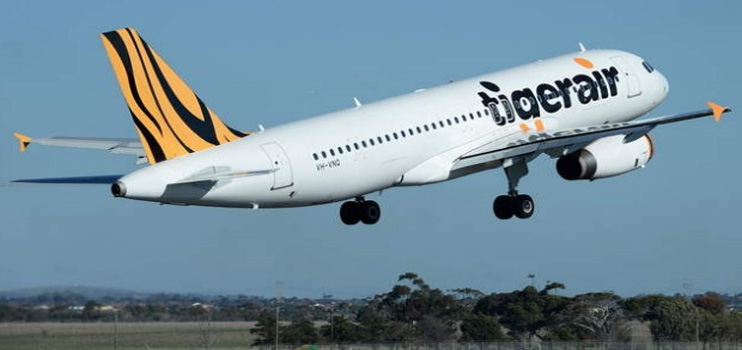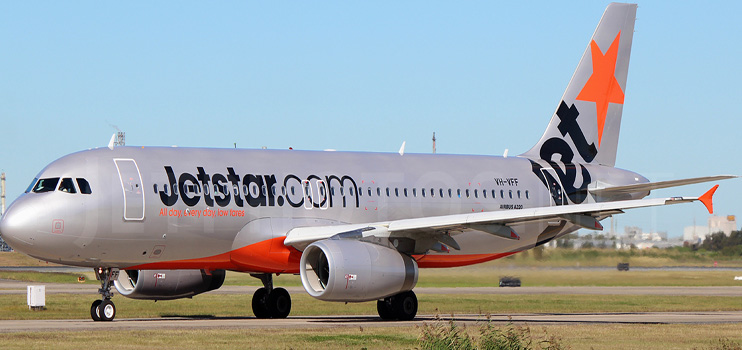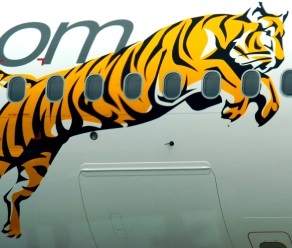Low-cost carriers fight for hearts and minds
13 May, 2015
5 min read
A unique customer service “war” threatens to break out between Australia’s two low-cost carriers as price-focused battle for bums on seats broadens to include hearts and minds.
Virgin Australia took over Tigerair last October to do battle with Qantas subsidiary Jetstar primarily on the low-fares holiday routes, but Tigerair is battling to overcome its poor record as Australia’s worst airline for consumer complaints. Tigerair now claims it has taken the lead over Jetstar, at least at the airport, following the rollout of Max Airport – a software system loaded into portable iPad units that allows airline staff to process passengers anywhere in the terminal without requiring them to queue at a counter.
“With the full network roll-out of Max Airport, we believe we will have the best passenger experience at the airport of any low-cost carrier,” boasts Tigerair Australia’s director of commercial, Adam Rowe. Until now, Tigerair has had a reputation from hell among its customers as a result of an aggressive system of ancillary pricing that many have complained amounts to a series of “gotchas”.
Even in the 2014 annual report due out this week by the Airline Customer Advocate – a voluntary ombudsman program funded by the airlines – Tigerair is believed to dominate the top five areas of complaint. Since its fleet was fully deployed after the 2011 shutdown ordered by the Civil Aviation Safety Authority for safety breaches, Tigerair has also had the industry’s worst on-time punctuality, which it says its new systems – and its crackdown on carry-on baggage limits – is helping to fix.
Only about 40% of Tigerair’s customers who don’t use web check-in still have to be processed manually at the airport. They are now being looked after by Tigerair staff armed with the new Max Airport iPads. “As part of the business turnaround at Tigerair, there’s been a substantial focus on improving the customer experience,” says Rowe. “We’re a low-cost carrier, but we believe that people should still have a quality experience.
“What Max Airport does is mobilise the ground staff, get them out from behind the desk and get them engaging with our customers in a much more friendly way.”
Rowe says the “transaction time” per passenger, if they haven’t used web check-in, is “much reduced”. “You don’t have the angst of needing to line up in a queue,” he says. “That means they (passengers) can go off and sit down and enjoy a cup of coffee in the airport and relax before their flight.”Rowe says the airline’s new computer reservations system, being commissioned at the same time as Max Airport, will also greatly reduce customer complaints about issues like unexpected pricing “gotchas”.
“The new booking engine will have an increased level of awareness around what’s available and what each customer has purchased at all times through the booking flow,” Rowe says. “There’s an ongoing summary that has live updates according to what has been selected.
“It has been designed to be as transparent as possible. We believe people should be aware of what they’re purchasing and that’s been the ethos behind the design.”
Customer complaints are “well down” since the takeover by Virgin Australia last October “and the overall satisfaction rating is well up”. In the most recent month, the airline’s internal polling found a 75% satisfaction rating among Tigerair customers, according to Rowe.
The other major battleground which the Max Airport system will be used for will be Tigerair’s chronic poor punctuality.
For the 2014 calendar year, federal government figures show that, although the Australian statistics were far superior to most of the industrialised world, Tigerair was last in on-time performance, with just 75 per cent of flights arriving on time, compared with Jetstar’s 83.1 per cent and market leader Qantas’s 87 per cent. There was a huge improvement in the latest month for which figures are published (March), with Tigerair’s on-time arrivals at 84%, almost catching Jetstar (86.5 per cent) and market leader Virgin Australia (90 per cent).
Rowe believes improved on-time performance (OTP) will play a major role in attracting budget business travellers, who have been turned off by Tigerair’s poor punctuality. “The airport app will definitely have an impact on on-time performance as it reduces the amount of time people need to be processed through the airport – in a more customer-friendly way,” he says. “OTP is tracking very well. We’ve seen an improvement month on month to have some quite pleasing levels recently. “There’s a real value-for-money element: apart from what people pay for their fare, they want to get to their destination safely and on time and we are certainly focused on delivering that.”
Rowe says the crackdown on carry-on baggage, announced by both Tigerair and Jetstar last year, is having a major impact on flight reliability.
“That could certainly be seen as a reason behind the uptick in on-time performance,” he says. “(For Tigerair), it’s only been in place for the past three weeks. “However, we’re seeing some good results on our daily reports with loading times in particular reducing substantially.”
Jetstar is reluctant to get into a discussion of the merits of its closest competitor's change of heart about customer service. A Jetstar spokesman said the airline had no comment.
Next Article
Virgin gets nod for Tiger deal

Get the latest news and updates straight to your inbox
No spam, no hassle, no fuss, just airline news direct to you.
By joining our newsletter, you agree to our Privacy Policy
Find us on social media
Comments
No comments yet, be the first to write one.
